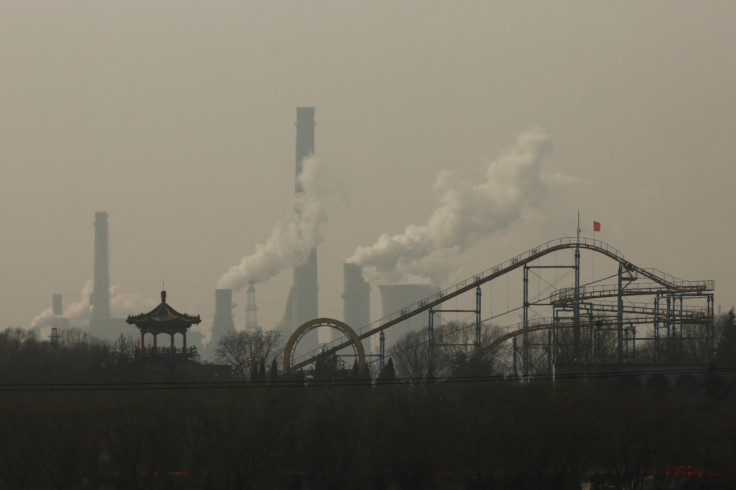Factbox-Asia's Carbon Pricing And Emission Trading Systems

Japan, the world's fifth-biggest carbon dioxide (CO2) emitter, will begin a carbon pricing scheme in stages from April to encourage companies to curb emissions and achieve its goal of carbon neutrality by 2050.
Here is a look at some of the carbon emissions trading systems (ETS) and pricing mechanisms in Asian countries aimed at reducing greenhouse gas emissions and achieving net zero targets.
JAPAN
* The government in December proposed introducing a carbon levy on fossil fuel importers in 2028-29 fiscal year to encourage companies to curb carbon dioxide (CO2) emissions.
* Japan's version of an ETS, set up by a forum for "green transformation" called the "GX League", will begin in the 2023/24 fiscal year on a voluntary basis, followed by full-scale operation from around 2026/27.
* By 2026/27, Japan will set guidelines for the ETS and introduce a mechanism for third-party certification of companies' targets. Official supervision may also be introduced for those abusing the system.
* From around 2033/34, auctions for emission allowances for the power generation sector will begin.
* Details including the price of carbon, the scope of coverage and whether it should be mandatory are being discussed.
* A carbon levy will be introduced from around 2028/29 on fossil fuel importers such as refiners, trading houses and electricity utilities. The initial levy will be set low but will gradually rise.
CHINA
* China launched its ETS in 2021, with a dedicated exchange in Shanghai, covering the power sector - which accounts for around 40% of the country's total emissions. It is expected to expand to other carbon-intensive sectors, including steel and construction, in its next phase.
* China aims to achieve net zero by 2060.
HONG KONG
* The Hong Kong stock exchange in November carried out the first batch of carbon credit trades on its new voluntary carbon market, joining a handful of Asian exchanges in tapping opportunities resulting from governments' push to achieve climate goals.
INDIA
* Parliament in December passed the Energy Conservation (Amendment) Bill 2022 that sought to establish carbon trading.
* In October, green energy companies, such as Adani Green Energy Ltd, and carbon offsetters like EKI Energy Services Ltd, came together to develop a carbon credit market to help achieve energy transition goals.
* India plans a stabilisation fund to keep prices of credits in its planned carbon market above a certain threshold, ensuring they remain attractive for investors and that the market succeeds in cutting emissions, two government sources said.
* India aims to be net zero by 2070.
INDONESIA
* In February, Indonesia launched the first phase of mandatory carbon trading for coal power plants, part of efforts by Southeast Asia's biggest economy to boost renewable energy and achieve net zero emissions by 2060.
* Authorities are studying the implementation of a carbon exchange and plan to set up agencies to monitor and verify emission volume.
MALAYSIA
* The stock exchange launched a voluntary carbon market (VCM) in December with the introduction of the Bursa Carbon Exchange, the world's first Shariah-compliant carbon exchange.
* The Southeast Asian nation has pledged to cut greenhouse gas emissions dramatically by 2030 and reach net-zero by 2050.
PHILIPPINES
* The Department of Finance has said it was studying the feasibility of implementing carbon pricing mechanisms such as a carbon tax to generate revenue that can be tapped for environmental concerns.
* However, the idea has received lukewarm response from some lawmakers who are concerned a carbon tax might make electricity more expensive.
* As early as 2016, a resolution was filed in the senate calling for the introduction of carbon pricing legislation, but little has happened since.
SINGAPORE
* Singapore implemented a carbon tax in 2019, which applies to all facilities producing 25,000 tonnes or more of greenhouse gas emission annually, including oil refineries and power plants.
* The government announced in February 2022 that the carbon tax would be increased fivefold to S$25 a tonne in 2024, to meet its zero-emissions target by around 2050.
* Singapore's Climate Impact X completed its pilot auction in November 2021. That trade involved 170,000 carbon credits from eight global projects and 19 buyers.
* The government also plans to develop hydrogen trading by creating standards and frameworks such as a guarantee of origin to certify the low-carbon origin of imported hydrogen.
SOUTH KOREA
* South Korea's ETS started in 2015, covering around 70% of the economy including the power sector, industry and domestic aviation.
* South Korea targets carbon neutrality by 2050.
VIETNAM
* The government in January 2022 passed a decree outlining key foundations of a carbon trading platform that is to be set up for a pilot operation in 2025, and for official operation in 2028.
© Copyright Thomson Reuters 2024. All rights reserved.





















